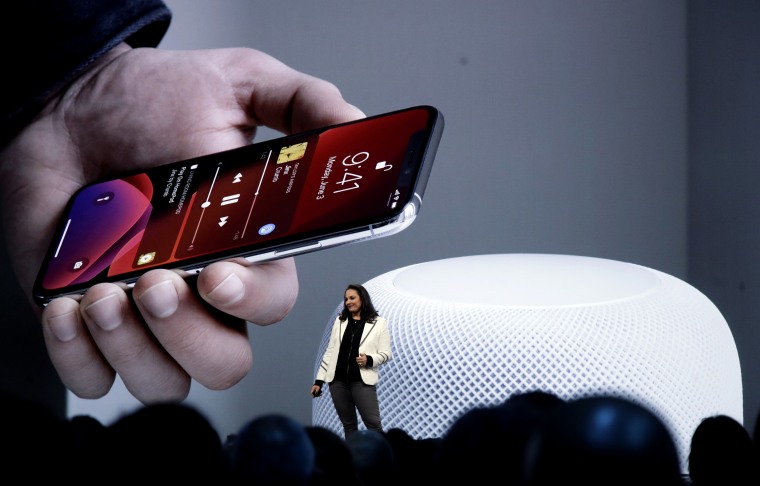It’s the end of an era for Apple's music lovers.
The tech giant announced Monday during its yearly developers conference in San Jose, California, that it will be breaking up iTunes, the desktop application that helped jumpstart the digital music economy and made Apple a force in the entertainment industry.
Instead of iTunes, Apple will offer separate applications for music, television and podcasts.
Apple Music, the company's subscription streaming rival to Spotify, will take on the role of all music-related consumption. Apple TV will wrap in the company's forthcoming streaming video service. And the company's podcast app will continue to serve spoken-word news and entertainment content.
The apps will be available as part of Catalina, Apple's new desktop operating system.
“With macOS Catalina, we’re bringing fresh new apps to the Mac, starting with new standalone versions of Apple Music, Apple Podcasts and the Apple TV app,” Craig Federighi, Apple’s senior vice president of software engineering, said in a press release.
The company said that all music purchased through iTunes will be available in its Music app.
Apple introduced iTunes in January 2001 as the “world’s best and easiest-to-use jukebox software,” with the first iPod announced later that year in October. Two years later, Apple launched the iTunes Music Store as an easy way for consumers to download albums and individual songs as well as TV shows.
Apple founder and CEO Steve Jobs promoted the iTunes store as a way forward just as the music industry was beginning to decline because of widespread digital piracy.
“Consumers don’t want to be treated like criminals and artists don't want their valuable work stolen,” Jobs said in the company’s announcement at the time. “The iTunes Music Store offers a groundbreaking solution for both.”
While iTunes became a default app for just about every Apple user, the software had plenty of critics — many of whom greeted news of the program’s demise on social media. In recent years, iTunes had become a large program and often ran slowly despite redesign efforts.
“When Steve Jobs introduced iTunes, he promised a Bentley,” Nicholas Thompson, editor of Wired Magazine, tweeted. “Eventually, it turned into a clown car. And now the company is ditching it.”
“Farewell iTunes on the Mac. Or is that good riddance?!” Geoffrey Fowler, technology columnist at The Washington Post, tweeted.
